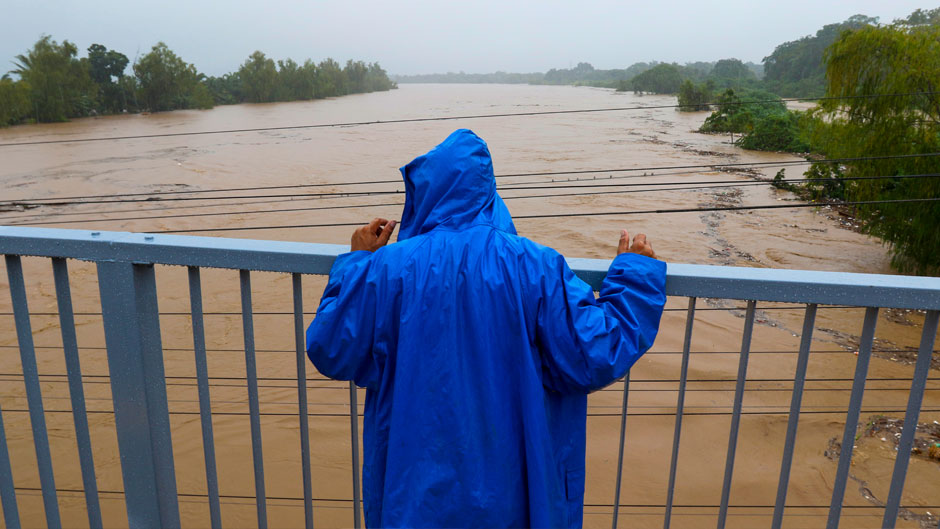Hurricane Eta left devastating destruction after it hit the coast of Central America last week as a Category 4 storm. Powerful winds of up to 150 mph and heavy rains caused disastrous mudslides in Honduras, Guatemala, and Nicaragua. Thousands are now homeless, and millions have been impacted as the death toll continues to increase as the recovery efforts ramp up.
Jackeline Del Arca, an international student at the University of Miami from Honduras, is one of hundreds of thousands whose family was affected by the hurricane. The moment she knew her family and friends were safe, she immediately began to raise awareness of relief aid and efforts for her home country.
“More than five bridges were destroyed, there’s six overflowing large rivers, and it has left the entire country in an inconsistent stage of miscommunication because there are multiple power outages nationwide,” said Del Arca, a senior majoring in architecture. “More than 6,000 families have lost their homes. As the days go by, the number of bodies emerging as the waters go down become even scarier.”
The situation turned dire this weekend. A new storm, Hurricane Iota, was bearing down on Central America and is expected to pass over Honduras and Nicaragua Monday night. As much as 20 to 30 inches of additional rainfall could impact the area, according to the National Hurricane Center. Authorities have reportedly begun evacuating people from areas in Iota’s path.

Del Arca was born in San Pedro Sula, Honduras, and made the decision to attend the University four years ago because of the short two-hour flight to and from her home to Miami.
“I’m really close to my family,” she said. “I am so thankful that everyone is okay. People say Miami is the melting pot of Latin America, so I decided to come here. And honestly, it is a blessing to be able to learn in the School of Architecture.”
While Del Arca said that her family is “OK,” they are not unscathed. Her uncle, who lives in a two-story home, had to evacuate to the roof because of rising water levels. He and his family waited two days to be rescued after Hurricane Eta passed. Del Arca’s aunt is the owner of two pig farms in the mountains of Honduras. She lost around 10,000 pigs in the storm.
“Just seeing everything going on back home is very heartbreaking,” said Del Arca. “As I was sitting in the School of Architecture doing some work, my Instagram timeline was flooded with videos and photos of what’s going on. It’s so hard to pass by these images knowing that I have family that is being affected by this.”
Aid and relief efforts are in full effect, and younger generations of Hondurans are mobilizing as much as possible via social media and WhatsApp to raise awareness. The last hurricane to hit Honduras was in 1998 and an estimated 11,000 people died. Del Arca fears it will take years for the damage to be repaired if help isn’t provided as soon as possible.
“It depends on us to make a difference this time,” she said. “We have to reconstruct; we have to get them food.”
In the midst of a pandemic, many Hondurans—including Del Arca— believe that it will be an uphill battle to receive the local government’s assistance. Local Honduran college students and Food for the Poor, one of the largest international relief and development organizations in the United States, have set up special funds to provide assistance.
“As a Honduran, my heart hurts to see the country where I was born and grew up be destroyed,” said Del Arca. “I hope that more awareness is brought through this, and we do everything we can to help continue to save lives in all the Central American nations represented in our UM community.”

